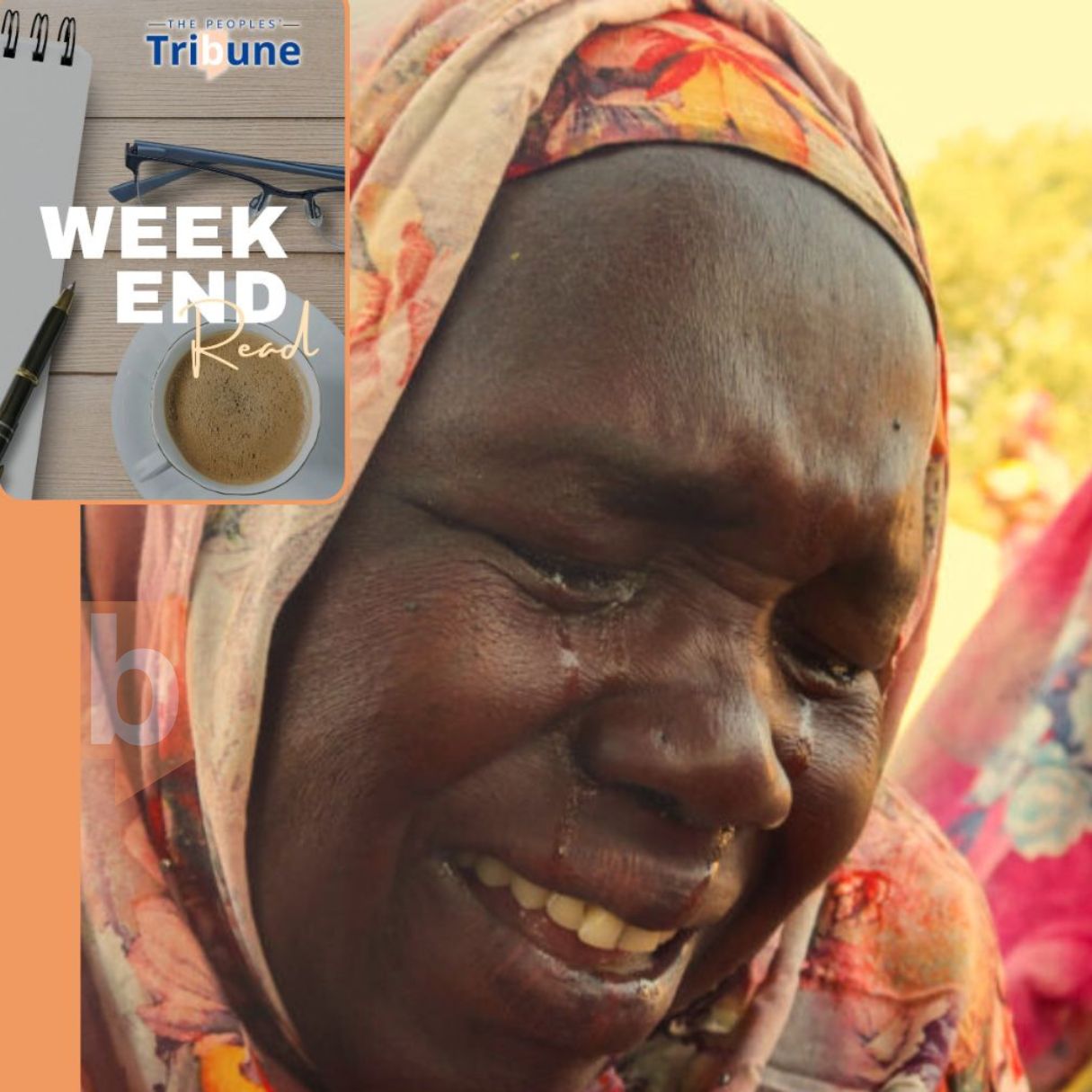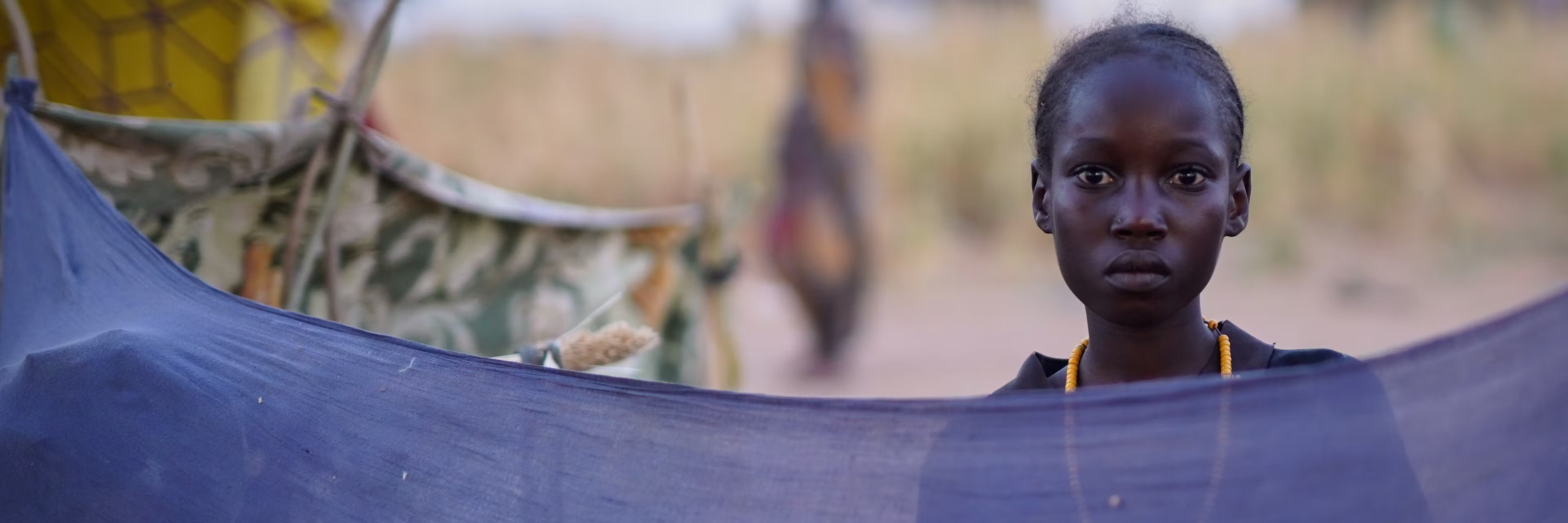Can the world prevent a Genocide in Sudan? And does the world even care?

Fighters laugh as they ride on the back of a pick-up truck, speeding past a row of nine dead bodies and driving towards the setting Sudanese sun. "Look at all this work. Look at this genocide," one cheers.
He smiles as he turns the camera on himself and his fellow fighters, their Rapid Support Forces (RSF) badges on display: "They will all die like this."
The men are celebrating a massacre that humanitarian officials fear killed more than 2,000 people in the Sudanese city of el-Fasher last month. On Monday, the International Criminal Court (ICC) said it was investigating whether the paramilitary may have committed "war crimes and crimes against humanity".
El-Fasher was a key target for the paramilitary RSF. It was the last stronghold in Darfur held by the Sudanese military - with whom the RSF has waged a devastating war since their ruling coalition collapsed in 2023.
More than 150,000 people are estimated to have been killed by the fighting over the past two years and both sides stand accused of a litany of war crimes - many of which were repeated by the RSF after the fall of el-Fasher.

Two years ago, a power struggle erupted between two factions of Sudan’s military. Today, this conflict is spiralling out of control, with thousands being killed in what a United Nations report has called “slaughterhouses”.
Last week, the Rapid Support Forces (RSF), the paramilitary group battling Sudan’s army, captured the city of El Fasher, the last hold-out in the western Darfur region held by the military.
Soon after, reports of ethnically motivated massacres emerged. The World Health Organization said 460 people were killed in just one incident at the city’s hospital. Witnesses described widespread executions and sexual violence targeting certain ethnic groups.
A UN fact-finding mission found already last year that both sides in the conflict have committed war crimes and crimes against humanity. Rights groups and analysts are now sounding the alarm about a possible genocide taking place. Some say the killings are reminiscent of the start of the Rwanda genocide in 1994, which killed a staggering 800,000 people.
The atrocities are also following the same troubling pattern as in Darfur 20 years ago, which killed an estimated 300,000 people. Back then, celebrity activists such as George Clooney helped put Darfur on the map. It became a major foreign policy issue in the United States, Europe, Africa and elsewhere. The genocide in Rwanda was still relatively fresh in people’s minds. The slogan “never again” was still taken somewhat seriously.
The global attention eventually led the International Criminal Court to indict Sudanese President Omar al-Bashir for allegedly directing the campaign of mass killings in Darfur, the first sitting head of state to be indicted. Sudan is now home to the worst humanitarian crisis in the world. Hundreds of thousands have been killed since 2023, 12 million people have been displaced and 21 million people face what the UN calls “high levels of acute food insecurity”.
Yet, compared to the early 2000s, the international community has been largely silent.
Why global attention matters
It would be tempting to say the wars and suffering in Gaza and Ukraine have overshadowed Sudan in the minds of global leaders and concerned citizens alike. But this does not mean the world can’t do anything. Global awareness did not solve anything by itself in Darfur 20 years ago, but it was a first step. It led to the eventual deployment of a peacekeeping mission by the United Nations and the African Union.
The mission was too small and limited, but it showed that international peacekeepers can still have a positive impact in the 21st century. They can monitor ceasefires, implement disarmament programs, protect civilians and prevent further escalations of violence. More attention, and pressure, also needs to be placed on the external actors supporting both sides in the current conflict. These countries are pursuing their own strategic interests in Sudan and consider the power struggle a chance to increase their influence in the region and exert control over Sudan’s natural resources.
The Sudanese Armed Forces (SAF) are backed by Egypt, Turkey, Iran and Russia. The United Arab Emirates, meanwhile, has been accused of funding and providing weapons to the Rapid Support Forces in clear violation of an arms embargo. While these countries deny arming both sides, rights groups say a flood of weapons has nonetheless entered the country. The United Arab Emirates, in particular, is accused of covertly supplying drones, howitzers, heavy machine guns and mortars to RSF fighters in Darfur. The United Arab Emirates has only just started to distance itself from the RSF following the recent atrocities in El Fasher.
What’s needed to bring peace
A ceasefire must urgently be agreed to, so humanitarian corridors can be opened to allow aid organisations to do their work.
All outside military support to the warring parties must end immediately. The current arms embargo is too limited and has been poorly implemented – it needs to be strengthened.
𝘞𝘪𝘵𝘩 𝘳𝘦𝘱𝘰𝘳𝘵𝘪𝘯𝘨 𝘣𝘺 𝘵𝘩𝘦 𝘉𝘉𝘊 𝘢𝘯𝘥 𝘉𝘺 𝘗𝘩𝘪𝘭𝘪𝘱𝘱 𝘒𝘢𝘴𝘵𝘯𝘦𝘳, 𝘚𝘦𝘯𝘪𝘰𝘳 𝘓𝘦𝘤𝘵𝘶𝘳𝘦𝘳 𝘪𝘯 𝘐𝘯𝘵𝘦𝘳𝘯𝘢𝘵𝘪𝘰𝘯𝘢𝘭 𝘓𝘢𝘸, 𝘜𝘯𝘪𝘷𝘦𝘳𝘴𝘪𝘵𝘺 𝘰𝘧 𝘞𝘦𝘴𝘵𝘦𝘳𝘯 𝘈𝘶𝘴𝘵𝘳𝘢𝘭𝘪𝘢
𝘖𝘳𝘪𝘨𝘪𝘯𝘢𝘭𝘭𝘺 𝘱𝘶𝘣𝘭𝘪𝘴𝘩𝘦𝘥 𝘣𝘺 𝘛𝘩𝘦 𝘊𝘰𝘯𝘷𝘦𝘳𝘴𝘢𝘵𝘪𝘰𝘯 𝘰𝘯 𝘕𝘰𝘷𝘦𝘮𝘣𝘦𝘳 6, 2025 (𝘊𝘳𝘦𝘢𝘵𝘪𝘷𝘦 𝘊𝘰𝘮𝘮𝘰𝘯𝘴 𝘊𝘊 𝘉𝘠-𝘕𝘋)

